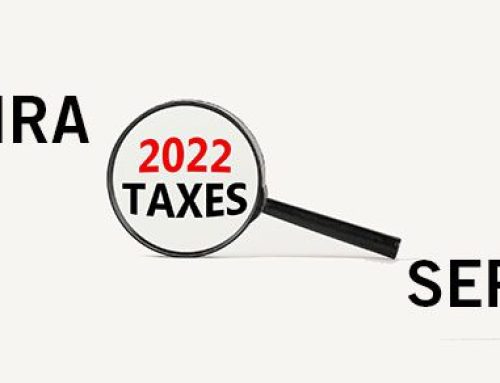 Charitable giving is an important part of the lives of many people. As we approach the holiday season it often comes to the forefront of our thoughts as we actively seek ways to make a difference in our community members’ lives and promote human welfare. Nothing quite warms the heart like knowing you made a real difference.
Charitable giving is an important part of the lives of many people. As we approach the holiday season it often comes to the forefront of our thoughts as we actively seek ways to make a difference in our community members’ lives and promote human welfare. Nothing quite warms the heart like knowing you made a real difference.
The decision to make a charitable contribution is a rewarding one; however it can also be an involved one. Deciding who to support, determining if your contribution will be deductible and what type of documentation is required to support that gift are all items to be considered.
Deductible charitable contributions include money and/or property given to nonprofit organizations with an IRS designated tax-exempt status. There are several types of nonprofit organizations as defined in IRS Publication 557 and include the following:
- 501(c) (3) Organizations are organized and operated for public safety, literary, educational, fostering national or international amateur sports competition, or prevention of cruelty to children or animals.
- 501(c) (4) Organizations include civic leagues and social welfare organizations. These organizations are operated only to promote social welfare to benefit the community; the organization’s net earnings must be devoted only to charitable, educational, or recreational purposes. The organization must provide evidence that the organization is structured exclusively to promote social welfare, by showing that the organization will operate primarily to further (in some way) the common good and general welfare of the people in the community.
- 501(c) (6) Organizations are business leagues, etc. A business league, in general, is an association of persons having some common business interest, the purpose of which is to promote that common interest and not to engage in a regular business of a kind ordinarily carried on for profit. Trade associations and professional associations are considered business leagues.
Contributions to domestic organizations exempt under 501(c) (3) are deductible as charitable contributions on the donor’s federal income tax return. Contributions to section 501(c) (4) or 501(c) (6) organizations generally are not deductible as charitable contributions for federal income tax purposes; however they may be deductible as trade or business expenses, if ordinary and necessary, in the conduct of the taxpayer’s business.
So how do you choose an organization to give to? You want to give to an organization where your donation will support a cause close to your heart and beliefs. Making sure the organization you choose will make the most of your gift also plays a big role in the decision. There are several ways to help your donation is being put to use where you intended and for the purpose you intended when you made the gift.
In general, exempt organizations must make available for public inspection certain annual returns and applications for exemption, and must provide copies of such returns and applications to individuals who request them. Copies usually must be provided immediately in the case of in-person request, and within 30 days in the case of written requests. The tax-exempt organization may charge a reasonable copying fee plus actual postage, if any. Many organizations’ Form 990, Return of Organization Exempt from Income tax, is accessible through the website GuideStar.org or on the organization’s own website. Reviewing the organizations exempt application and Form 990 will answer most of your questions. The application and Form 990 will state the organizations mission and purpose. In addition, Form 990 for 501(c)(3) and 501(c)(4) organizations will describe the three largest program service accomplishments for the filing year measured by expenses, detail of expenses categorized by program services, management and general, or fundraising are also provided. The percent spent on program expenses versus management and administrative expenses can help determine if they are a good fit for getting your donation to the purpose you have intended. Watchdog groups have an acceptable percentage of funds dedicated to the program that range from 60% to 80%. By calculating the program expense percentage you can determine if it is in an acceptable range helping you to ensure that your funds will not all be spent on administration or tied up in frivolous spending.
Once you have found an organization that you feel meets your criteria and is deserving of your donation, keep in mind the requisites in place for your donation to be deductible on your federal income tax return. In general contributions of cash, check, or other monetary gift, regardless of amount, you must maintain a bank record or a written communication from the organization showing its name, plus the date and amount of the contribution. For a contribution of property other than money, you generally must maintain a receipt from the donee organization that shows the organizations name, the date and location of the contribution, and a detailed description of the property.
If the contribution is worth $250 or more, stricter substantiation requirements apply. A deduction for a contribution of $250 or more will not be allowed without a written receipt from the donee organization. The written communication should clearly state that no goods or services were provided for the donation received. Further substantiation requirements apply when larger sums of money or property are donated.
Charitable giving can be very rewarding. Choosing a good organization that falls in line with the cause you would like to support and that you feel will make the most of your donation is important. To learn more about charitable contributions and how they may provide a tax savings to you, please consult with a qualified professional who can provide you with additional information and advise you as to your specific circumstances.
Jennifer S. Wright is a senior tax accountant with Dalby Wendland’s Grand Junction office. She graduated cum laude from Colorado Mesa University with a bachelor of science degree. Jennifer is an active member of the Grand Junction Chamber of Commerce Diplomats committee.



